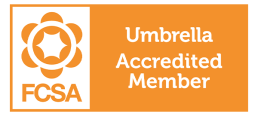What is the legislation about?
The agency provisions 44 to 47 of the Income Tax (Earnings & Pensions) Act 2003 (“ITEPA”) were amended and came into force on 06 April 2014. HM Revenue & Customs (HMRC) has constantly been concerned about the increasing number of workers who function as self-employed or sole traders but who are in fact disguised employees, sometimes hidden by intermediary companies. As such, HMRC thinks that they are not paying a fair of amount of tax or not paying any Pay as You Earn (PAYE) or National Insurance Contributions (NIC) at all.
The amendments brought to the law seek to pass the hands to recruitment agencies as they are deemed to be more directly involved with clients and have more influence on workers’ payment terms and conditions. The law targets those agencies that supply workers to end clients and deny employment rights as well as avoid NIC payments to workers. From 6 April 2014, PAYE is due on the earnings of the workers caught by the legislation and the agency is liable for NICs. If these are not paid, penalties are applicable.
Under the new legislation, are you targeted or not?
The legislation applies where a worker:
- Is subject to control, supervision or direction over the way that his duties are carried out;
- Provides his services personally;
- Is remunerated as a consequence of providing his services and;
- Receives remuneration which is not already taxed as employment income.
In other words, it applies to workers who are not really self-employed.
The primary liability for compliance (i.e. making payments under PAYE) falls on the agency who is the last in line in a staffing supply chain because he is the one who is in contact with the end user client for the supply of workers.
Also, for the purposes of this legislation, HMRC no longer has to prove that the worker is subject to control as to the manner of his working, now it is for the agency to show that the individual is not subject to such control.
Who falls into the list of exceptions?
- A worker who provides “excluded services” such as an actor, singer, musician, or other entertainer or as fashion, photographic or artist’s model;
- A worker who either provides services wholly from their own home or at other premises which are neither controlled or managed by the end clients not prescribed by the nature of services;
- A contractor who is already caught by IR35 which means that he is already paying tax and NICs on his earnings;
- A worker supplied through an intermediary and engaged via a Personal Service Company (PSC) which pays dividends*.
(*As per HMRC: “It will also not apply in most cases where profits are withdrawn as dividends as this is a return on capital distribution, not remuneration in consequence of workers providing their services”.)
Are Personal Service Companies (PSCs) safe from the legislation?
One of the amendments made to the ITEPA is the inclusion of provision 46A which stipulates the Targeted Anti Avoidance Rule (TAAR). It is designed to help HMRC deter tax avoidance by considering both:
- The motive for setting up the arrangements (i.e. whether a scheme is set up for the motive of avoiding income tax) and;
- What the arrangements seek to achieve (i.e. whether a scheme results in tax being paid).
Consequently, agencies need to be well advised to identify why their workers have chosen to operate via PSCs and verify that there are other reasons other than just reducing tax otherwise they would be within the TAAR.
Also, we should not forget that under the Managed Service Company legislation, if an agency actively encourages the use of PSCs, it may face a debt transfer liability.
How can your recruitment agency mitigate the risks associated with the regulatory change?
There is only a limited defence available to an agency under the law if it has genuinely verified the working status of a worker. There is a tax liability to the client or any other “relevant person” who provides the agency with a fraudulent documentation, the intent of which is to prove that the worker is not being directed, supervised or controlled. The law itself does not stipulate who has to prove the fraudulent nature of the document, but most likely, it would be the agency. So, apart from internal checks and thorough due diligence being set up, an agency needs to ask for documentary evidence of whatever it is relying on to avoid liability and be backed with warranties from relevant parties. Furthermore, agencies need to comply with the requirement of submitting their quarterly returns regarding workers not accounted for through Real Time Information (RTI) as from 6 April 2015 in order to avoid penalties.
This guide is being provided to you solely for your personal information. It is not intended for distribution to the press or any other media and may not be reproduced or redistributed by mail, facsimile, electronic or computer transmission or by any other means to any other person or body without the express written permission from a Director of Churchill Knight & Associates Ltd/Churchill Knight Umbrella Limited.
This guide is not a substitute for specific legal, accounting or other professional advice or opinions on related matters and issues that arise and should not be taken as providing specific advice on any of the topics discussed.
The information contained herein has been prepared by using sources believed to be reliable. Whilst reasonable care has been taken to ensure that the facts stated herein are accurate, no representation or warranty, express or implied is made by Churchill Knight & Associates Ltd/Churchill Knight Umbrella Limited, with respect to completeness, correctness, reasonableness or accuracy of any information and opinions contained herein.
Without limiting the generality of the foregoing, liability for any negligent or innocent statement or misstatement in respect of the contents of, or any omission from this guide are hereby expressly excluded. Churchill Knight & Associates Ltd/Churchill Knight Umbrella Limited has no obligation or liability whatsoever with respect to the information provided or any action or inaction of Churchill Knight & Associates Ltd/Churchill Knight Umbrella Limited or the recipient with respect to such information.
The Churchill Knight Group consists of Churchill Knight & Associates Ltd, Churchill Knight Umbrella, Bluebird Accountancy, Bluebird Umbrella and Umbrella Company UK.
Compliance will always be our priority
Churchill Knight Umbrella is proud to be one of the first UK umbrella companies with both an accreditation from the FCSA and SafeRec Certification. We're partnered with hundreds of agencies who equally value compliance and service, and we ensure all of the temporary candidates (contractors and freelancers) that are referred to us receive an exceptional payroll experience - from the initial calculation we provide them to processing their pay for the first time.

The FCSA is the UK’s leading professional body committed to ensuring the compliance of the supply chain of temporary workers.

SafeRec is revolutionary, and having a PSL exclusively composed of SafeRec certified umbrella companies will protect your business and candidates.




